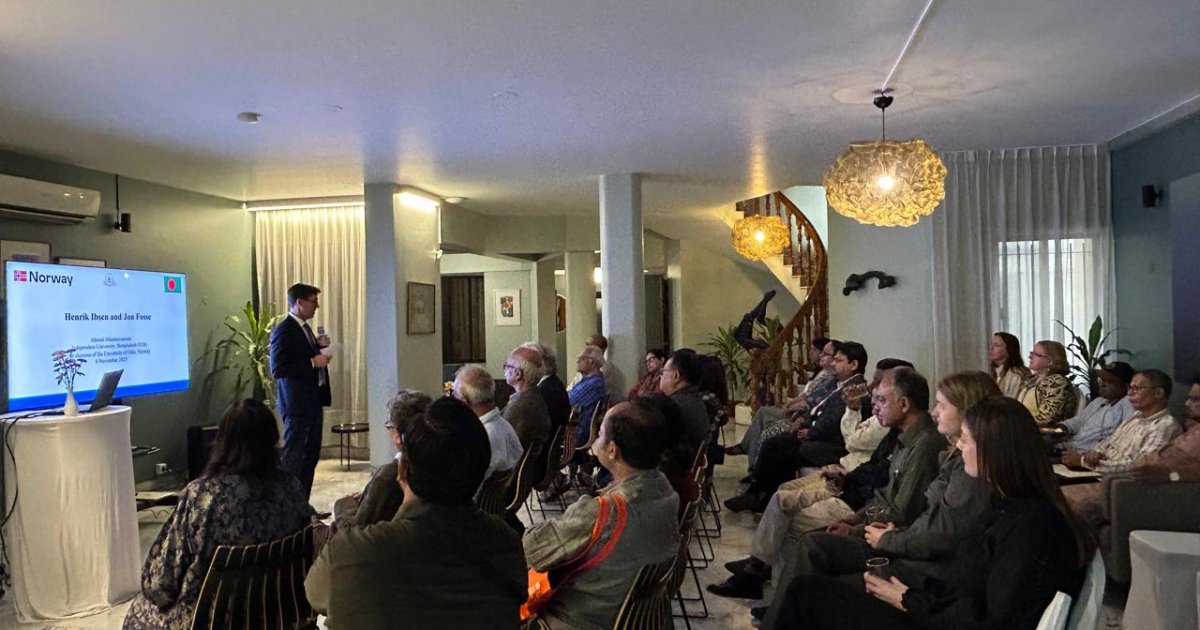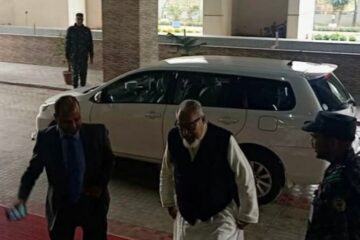As the world prepares to celebrate Ibsen’s bicentennial, the Norwegian Embassy in Dhaka hosted a talk on Ibsen and Fosse on Thursday.
Prof Ahmed Ahsanuzzaman of the Independent University, Bangladesh (IUB), an MPhil and PhD graduate in Ibsen Studies from the University of Oslo, used his talk to compare and contrast Henrik Ibsen and Jon Fosse, taking questions and comments from academics, representatives from the cultural scene, diplomats and development partners.
The year 2028 will mark the 200th anniversary of Henrik Ibsen’s birth, an occasion that will be commemorated across the world.
The legendary Norwegian playwright Henrik Ibsen is well known to many literature and culture enthusiasts in Bangladesh.
Most of his works have been translated into Bangla. Leading theatre groups of Bangladesh have staged his plays, which continue to deeply resonate today, reflecting issues of equality, morality, and social justice issues which remain strongly relevant in Bangladesh’s contemporary socio-political context.
In a statement, the Norwegian Embassy hoped that the works of Jon Fosse, the winner of the 2023 Nobel Prize in Literature, will become similarly well-known and loved in Bangladesh in the future.
While Henrik Ibsen and Jon Fosse are both Norwegian playwrights, they differ significantly in style and themes.
Both explore profound human emotions, loneliness, and a quest for meaning in life.
However, they approach these issues in vastly diverse ways. Ibsen addresses social and moral issues, employing compelling plots to expose hypocrisy and constraints society imposes on individuals.
Fosse is seemingly uninterested in making social commentary. His plays use silence, repetition, and interior monologue rhythmically to portray characters torn apart by inner conflicts.
His plays use silence, repetition, and interior monologue rhythmically to portray characters torn apart by inner conflicts.



